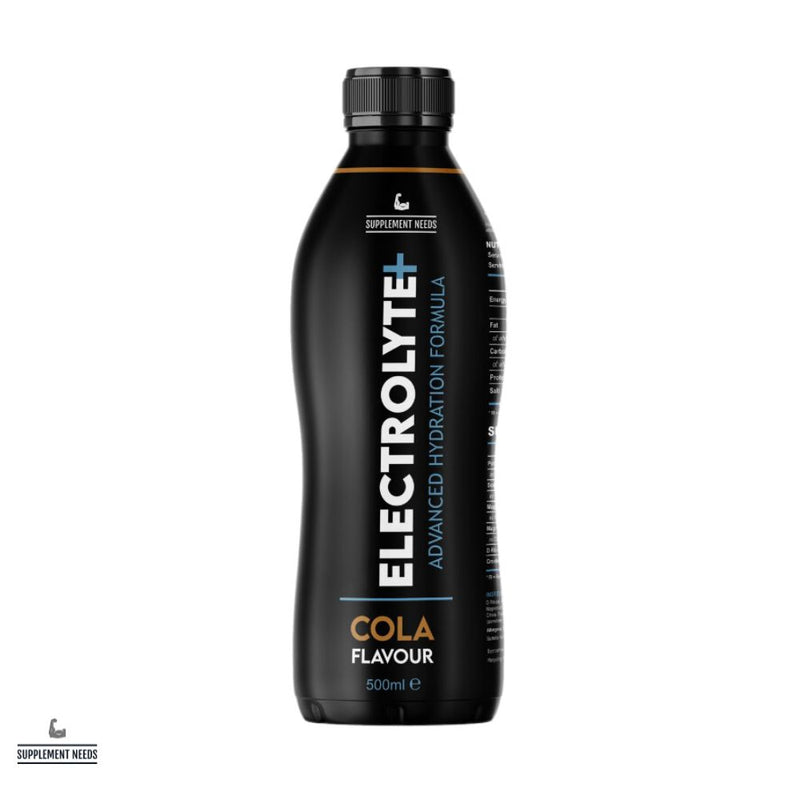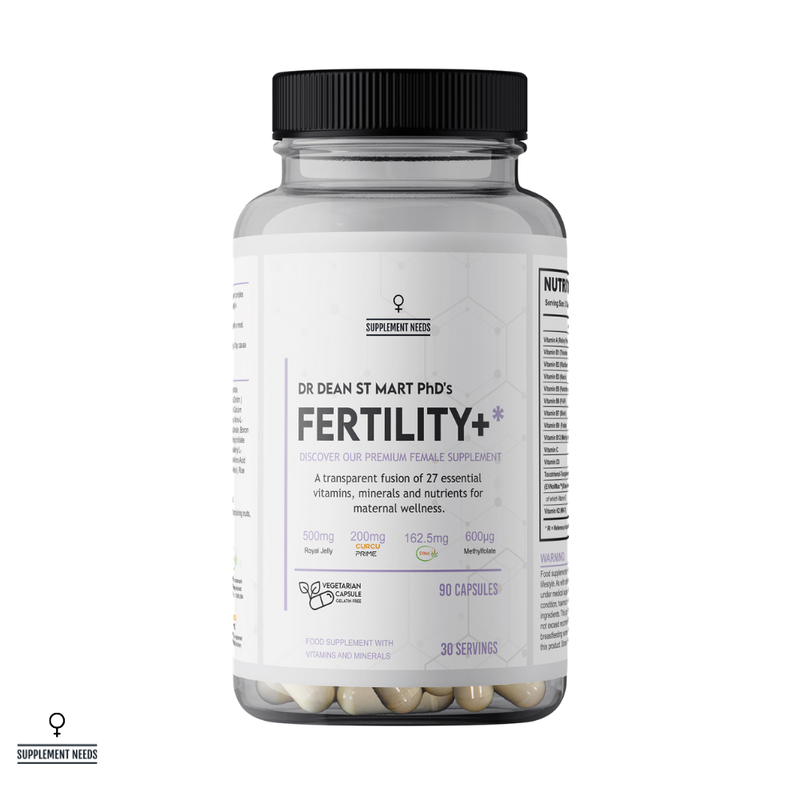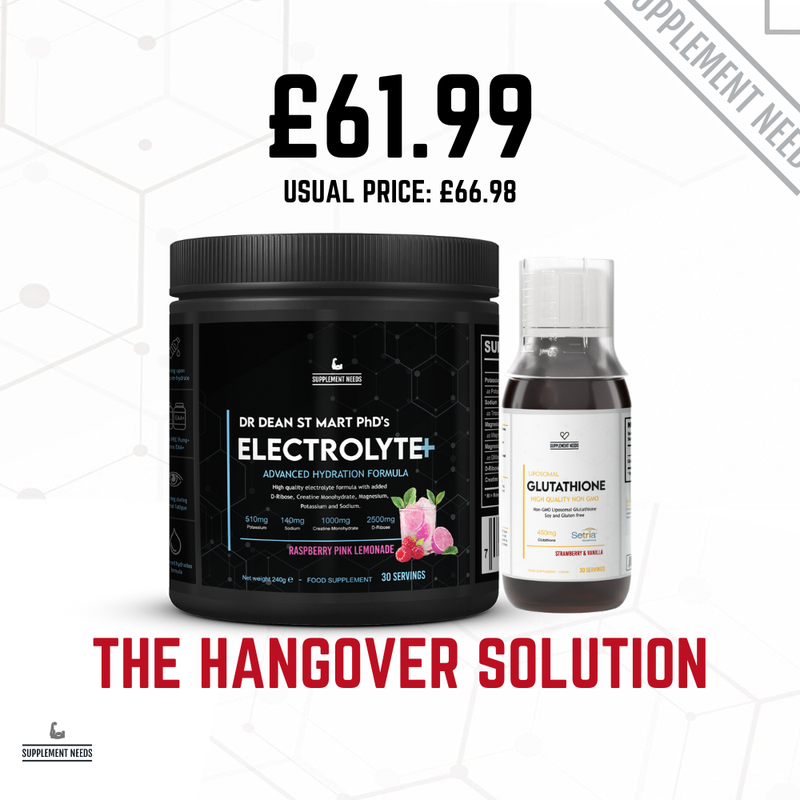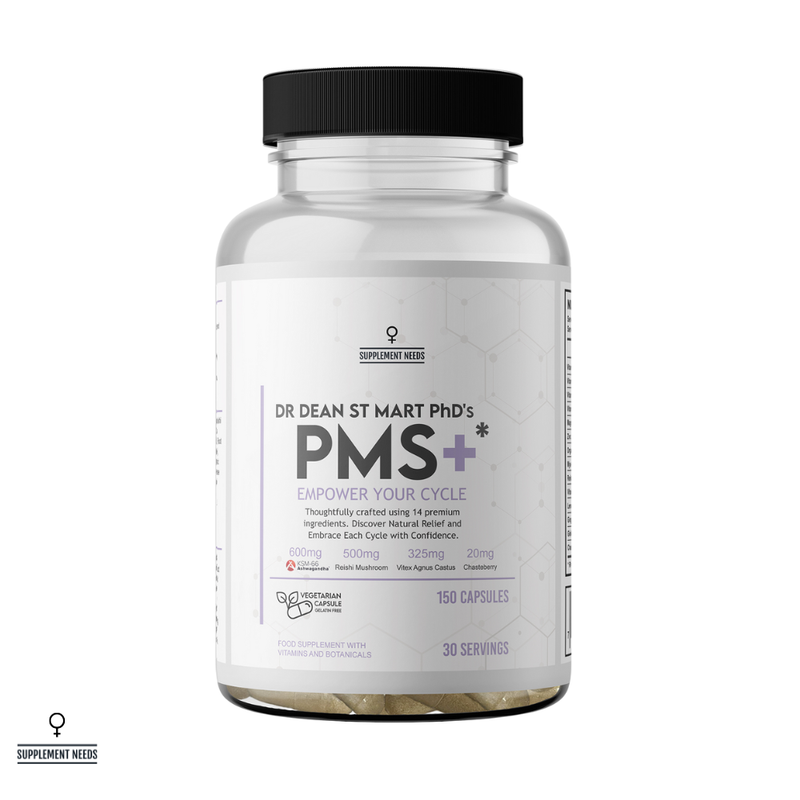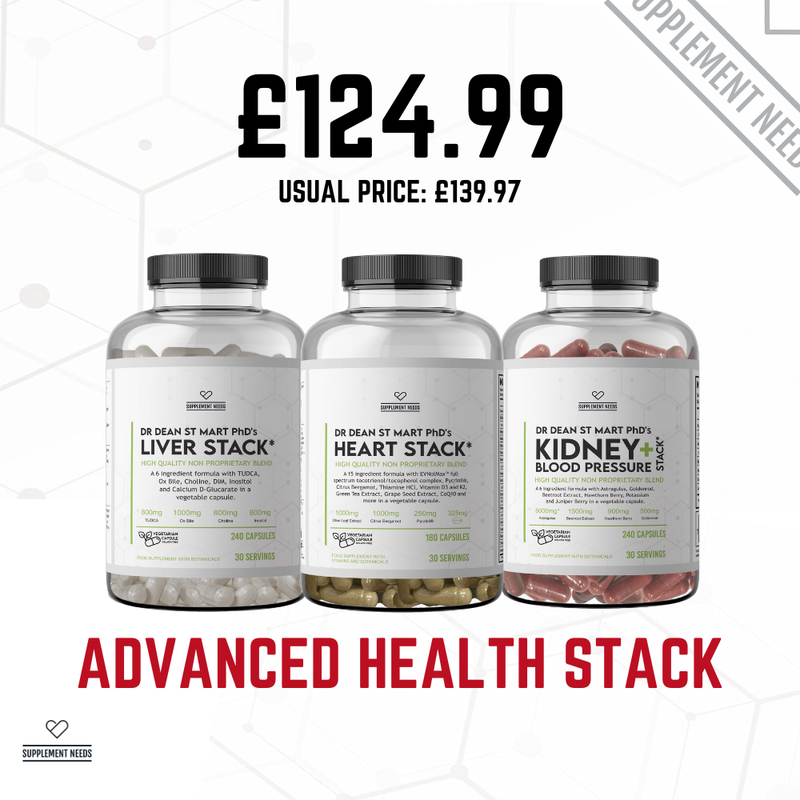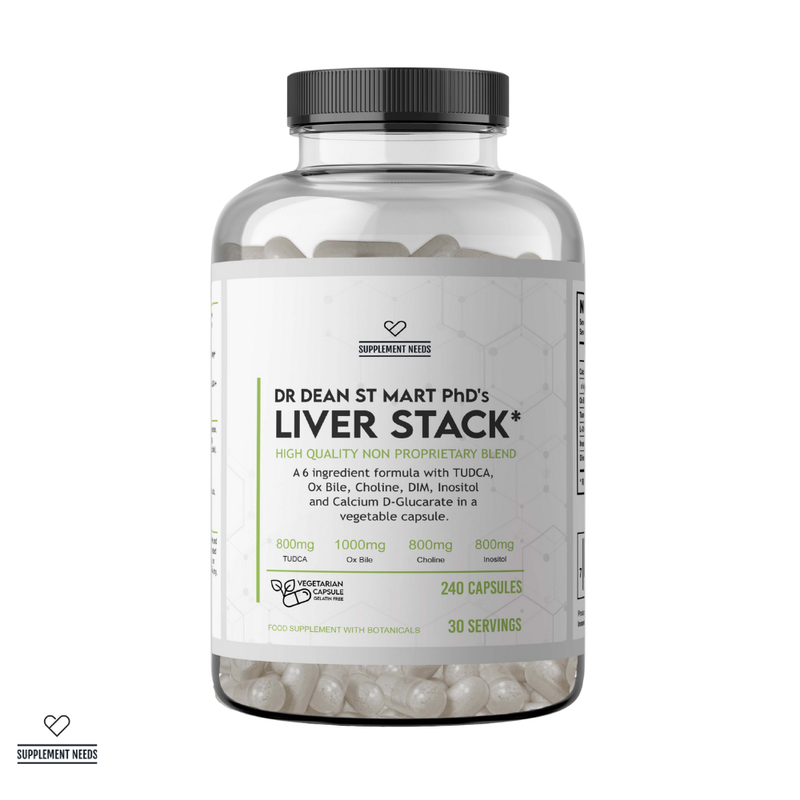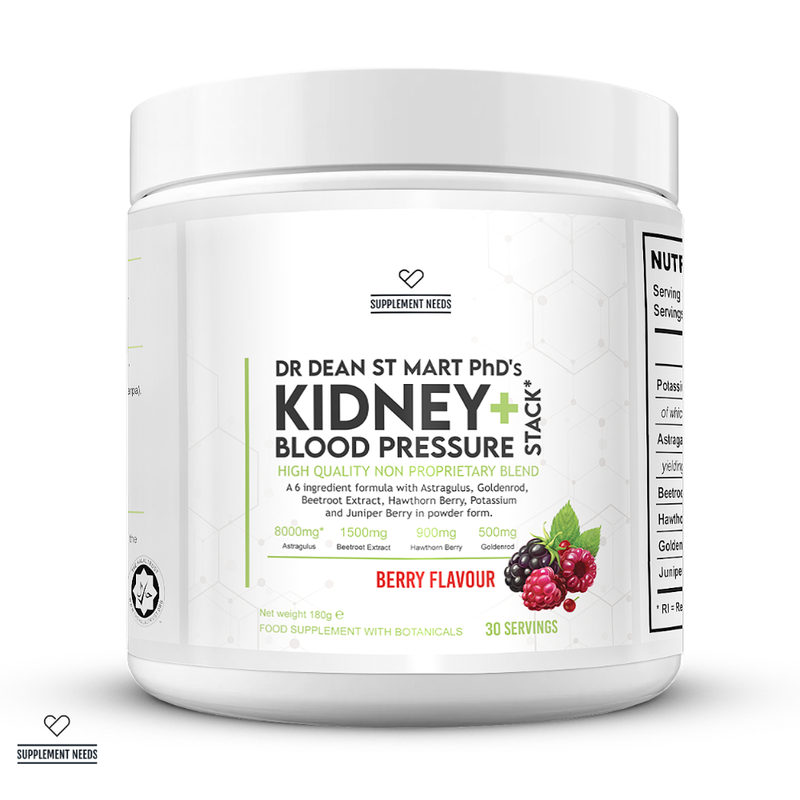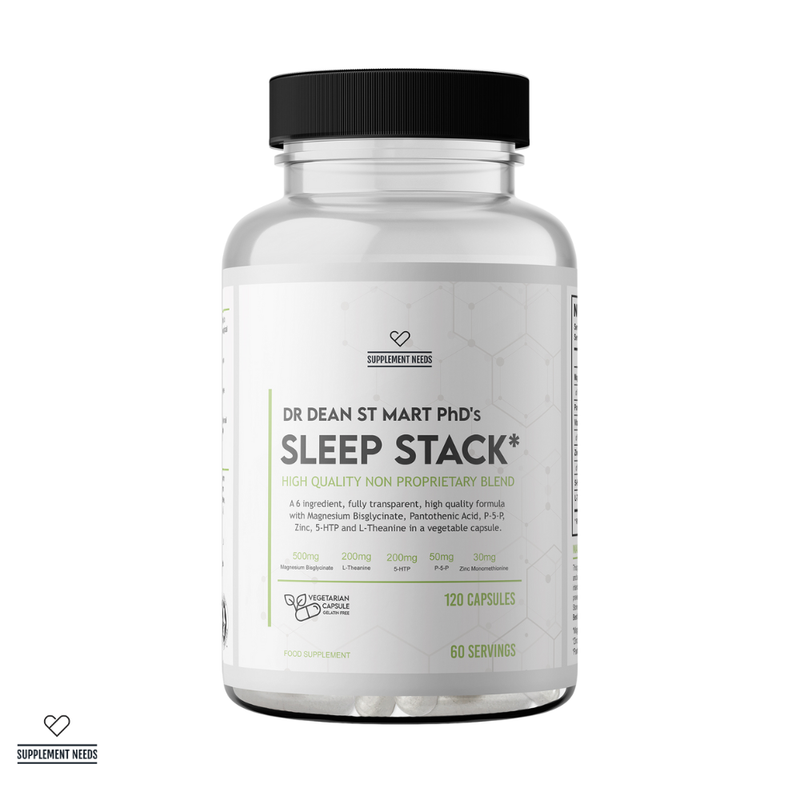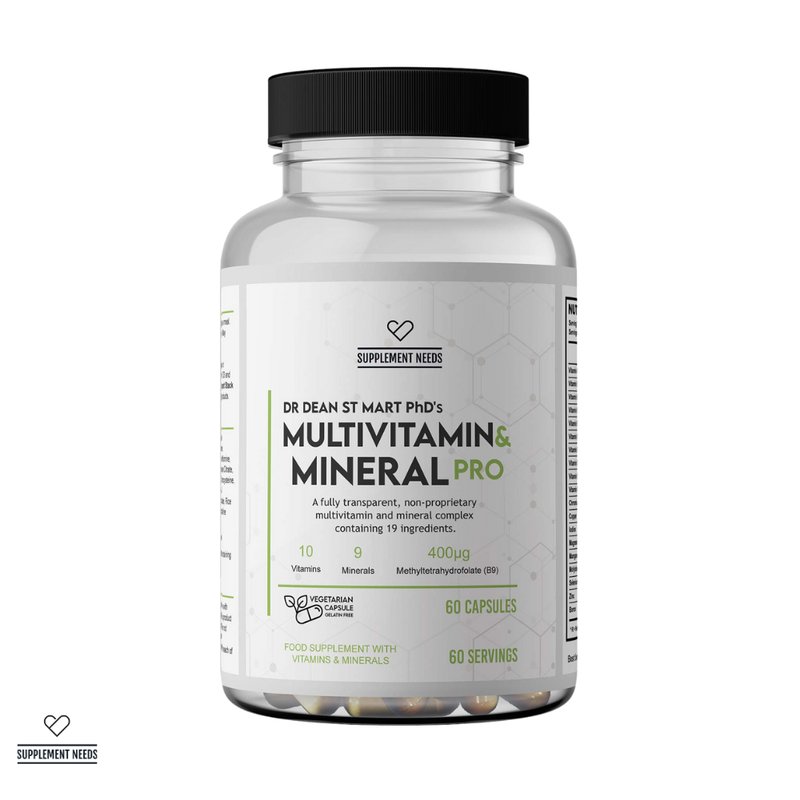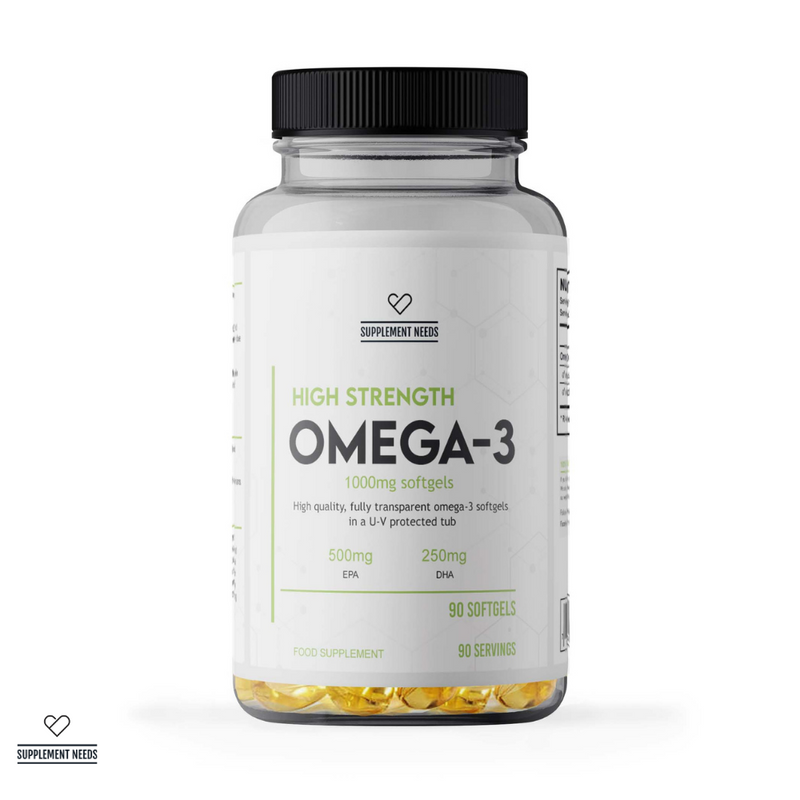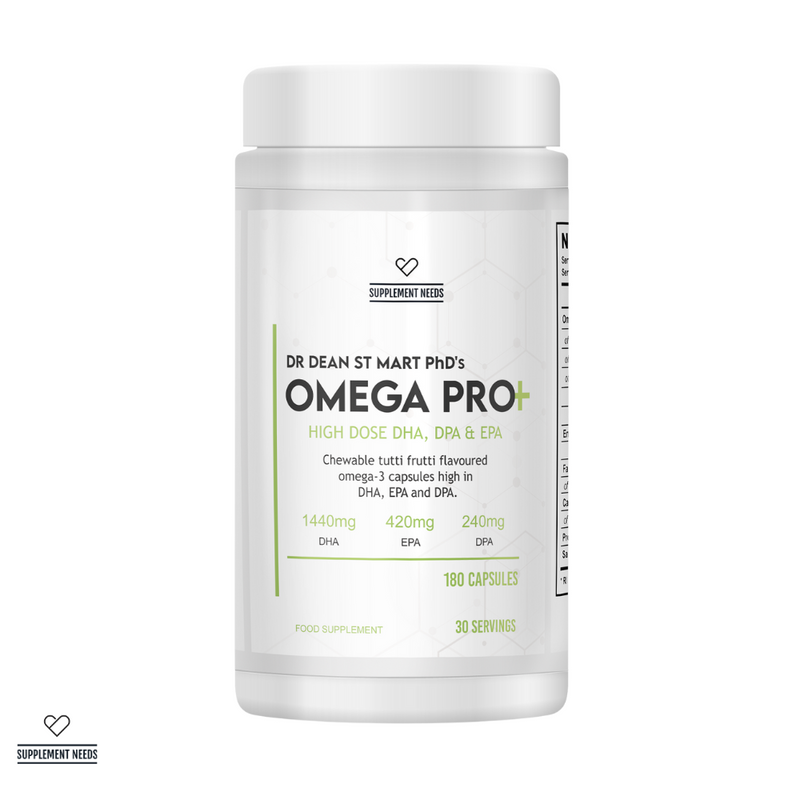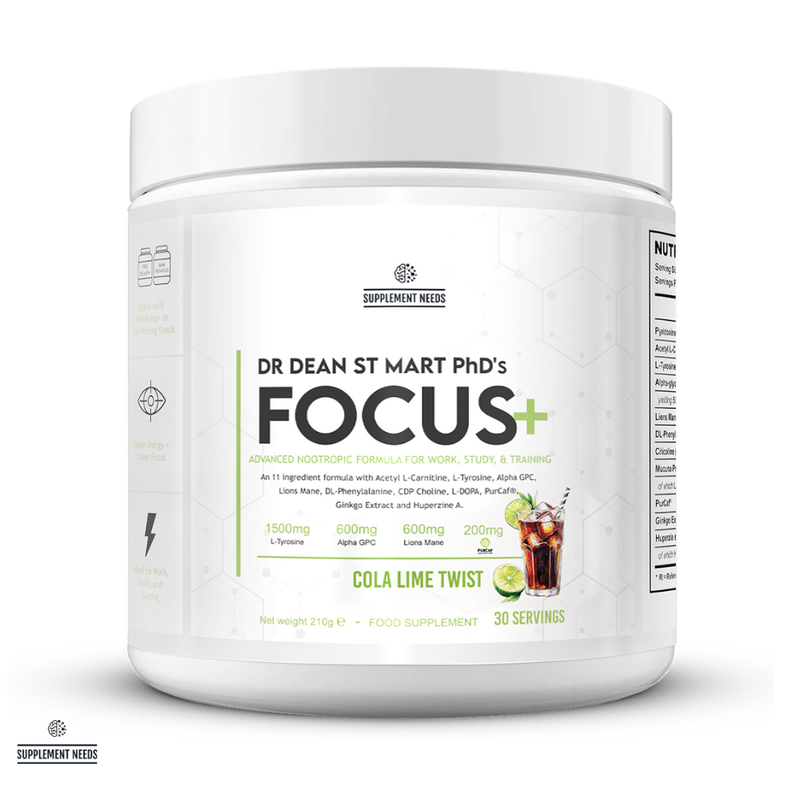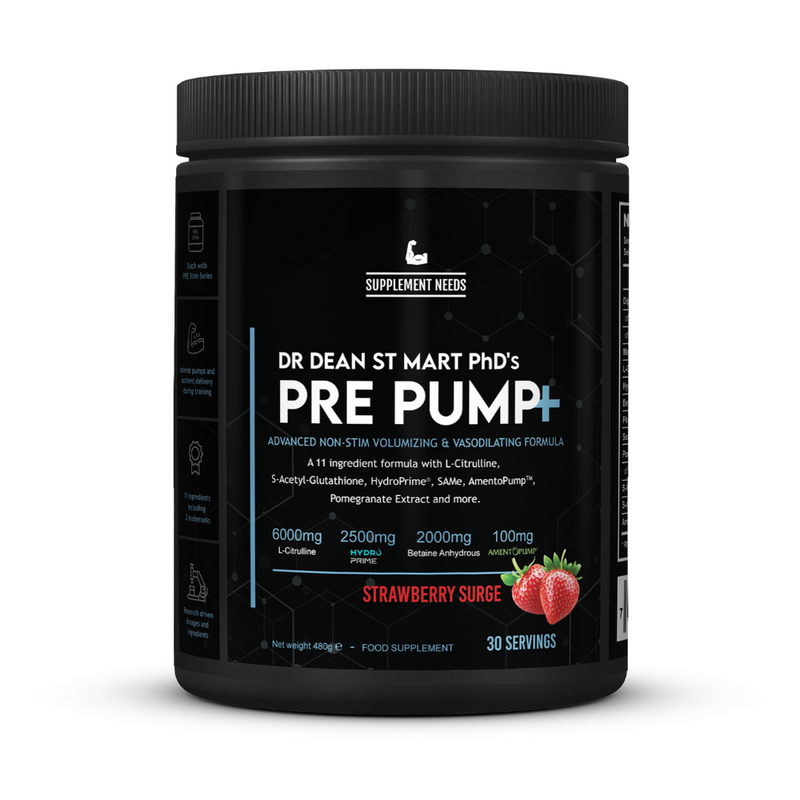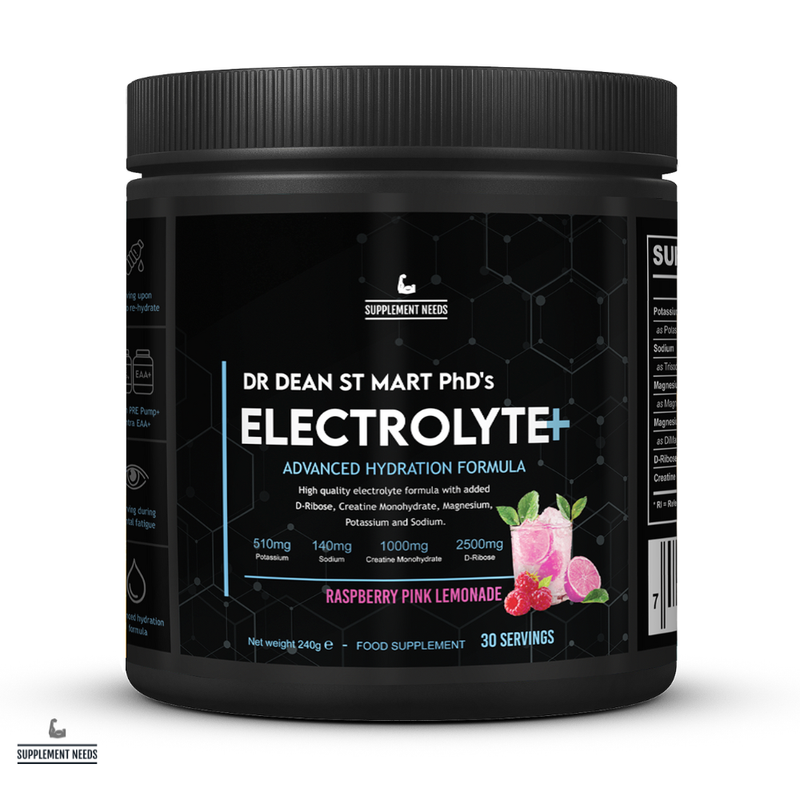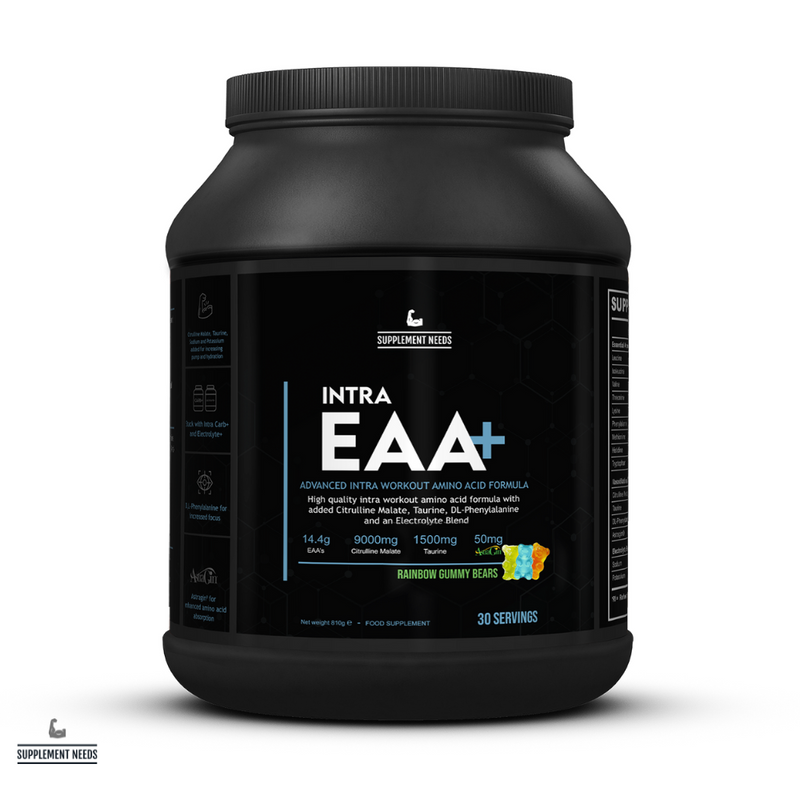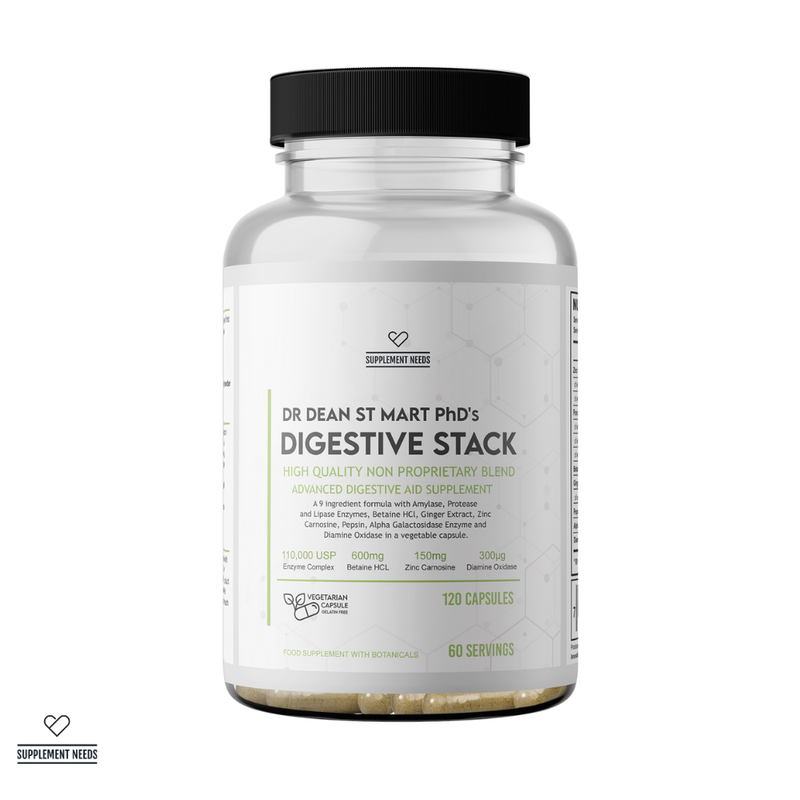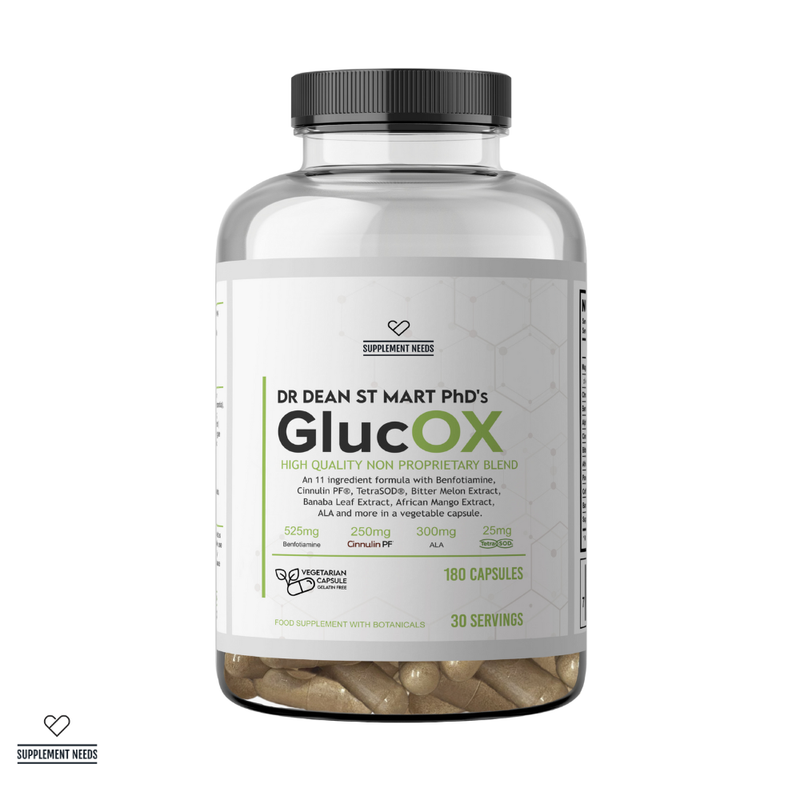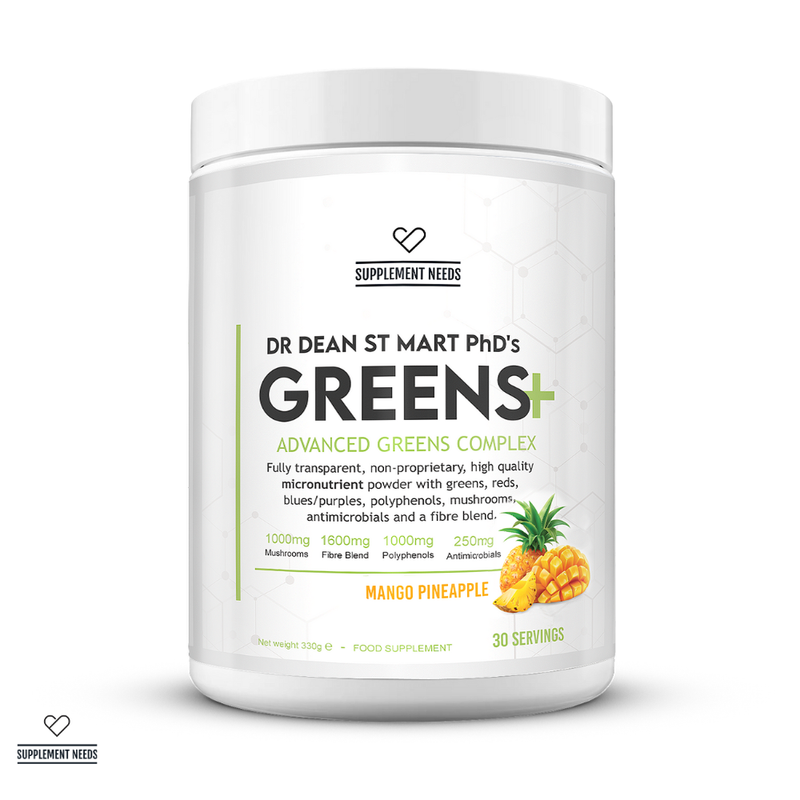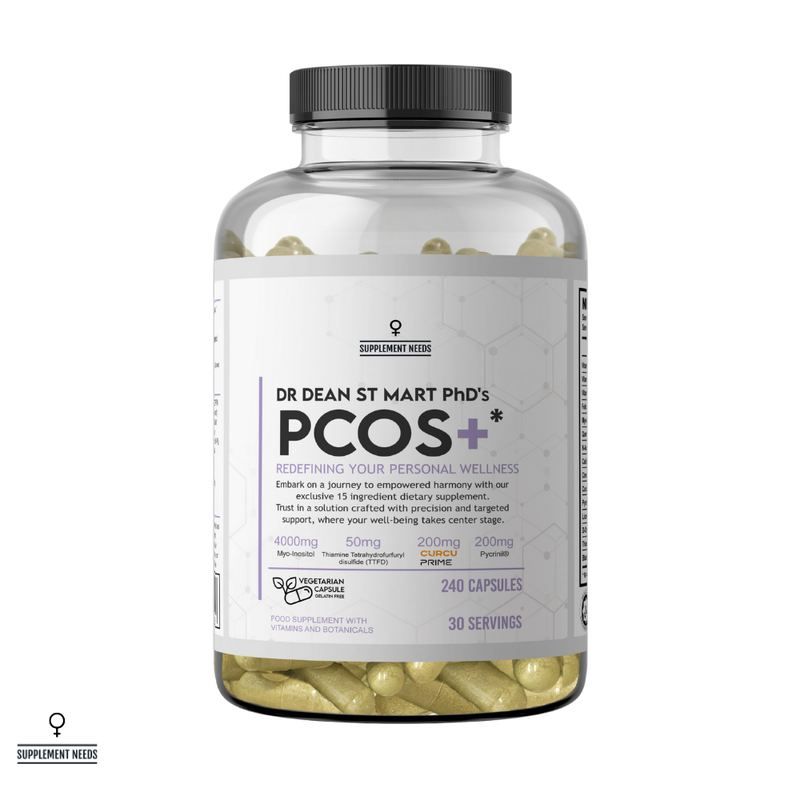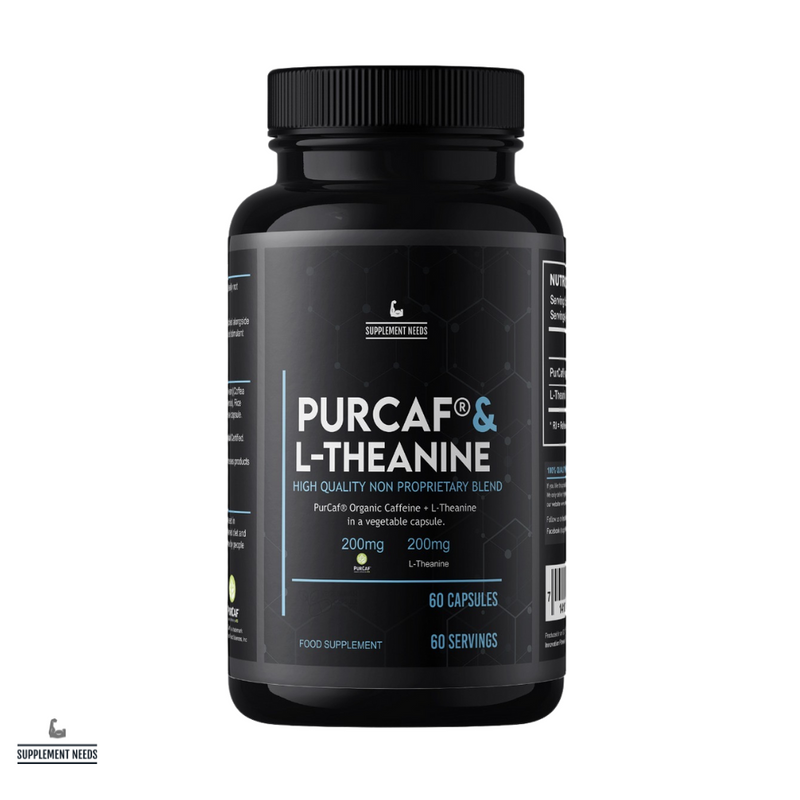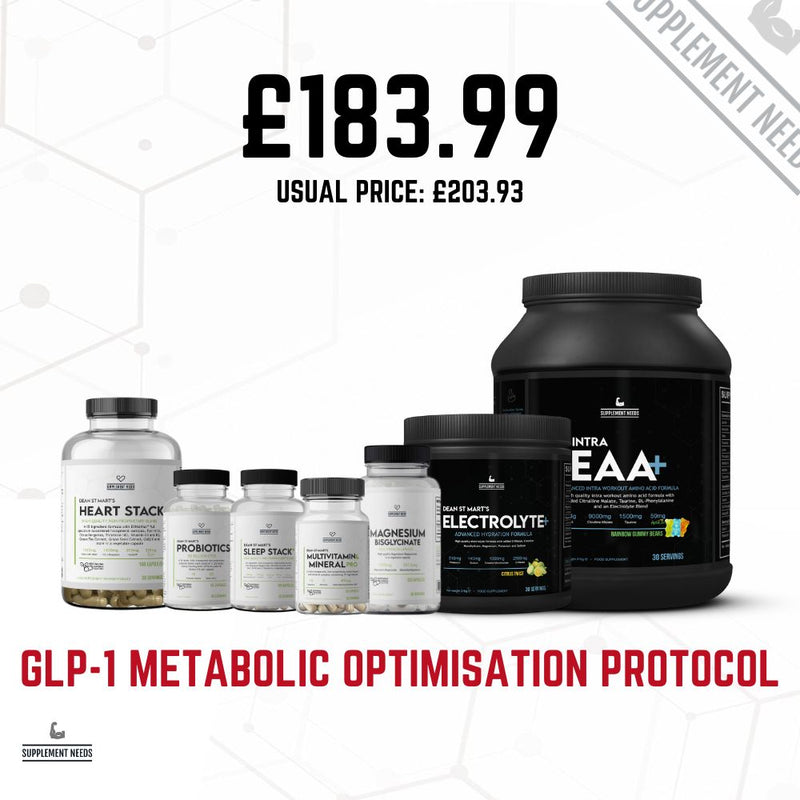We all know that moment when our mind feels foggy or our memory plays tricks. Wading through a mental quagmire can drain even the most active of people. But, what if there was a simple supplement that could potentially sharpen our focus and recall? Alpha-GPC is taking the world by storm, but if you’ve not heard of it before, or are unsure how it works, or what the potential benefits are, then keep reading…
What is Alpha-GPC?
Without getting too technical, Alpha-GPC is a water-soluble phospholipid and a highly bioavailable choline donor.1 Or, to put it more simply, it is a natural choline compound that is found in the brain.
It’s important to note that Alpha-GPC goes by a variety of different names. This is simply down the variety of ways in which Alpha-GPC is used - from supplementation to medicine. Some of the nomenclature you’ll see for Alpha-GPC is listed below:
-
L-alpha-glycerylphosphorylcholine.
-
Alpha-GPC.
-
a-GPC (or aGPC).
-
Choline Alfoscerate.
-
Glycerophosphorylcholine (GroPCho).
-
Alpha Glycerol Phosphoryl Choline.
-
Alpha-Glycerylphosphorylcholine.
Structurally, Alpha-GPC closely resembles lecithin (phosphatidylcholine) minus two fatty-acid chains, providing it a greater solubility in body fluids, and swifter passage across the blood-brain barrier than plain choline salts or phosphatidylcholine itself2.

Alpha-GPC’s action unfolds in three core stages: crossing into the brain, delivering choline to where it’s needed most, and feeding membrane-building pathways. Here’s how it works at the cellular level:
-
Efficient brain delivery: once ingested, Alpha-GPC is absorbed through the gut and appears in the bloodstream as glycerophosphocholine. Its water-soluble structure allows it to pass more readily across the blood-brain barrier than choline salts or phosphatidylcholine3. Within 30–60 minutes, plasma choline levels can rise by 50–100%, ensuring a rapid boost in the brain’s choline pool.
-
Direct choline donation for acetylcholine synthesis: brain-specific esterases split Alpha-GPC into free choline and glycerophosphate. Choline floods cholinergic neurons, supplying the raw material for choline acetyltransferase (ChAT). This enzyme combines choline with acetyl-CoA to form acetylcholine4. Because choline is often the rate-limiting substrate, this direct delivery pushes ChAT activity toward its maximum velocity (Vmax), providing faster, more plentiful acetylcholine production.
-
Phospholipid biosynthesis support: the glycerophosphate component feeds into the Kennedy pathway - a pathway that assembles phosphatidylcholine (the most abundant phospholipid in neuronal membranes) by combining glycerol, phosphate, and choline5.
What does this mean in plain English? Basically, supplementing your diet with Alpha-GPC can potentially result in sharper recall, quicker reaction times and smoother neuromuscular signalling.
Indeed, in a randomised, double-blind, placebo-controlled crossover study6 that examined Alpha-GPC supplementation in healthy men found that:
‘HD and LD A-GPC supplementation significantly increased cognitive performance in a group of young, healthy males as measured by changes in the Stroop Total Score and completion time of the Stroop Test. These results offer unique insights into the potential for A-GPC to acutely increase cognition in a group of young, healthy males’.
Are there any natural sources of Alpha-GPC?
Yes. Alpha-GPC is a natural compound found in various foods like meat, fish, milk, eggs, and some grains, although it is typically not present in high enough concentrations to meet the recommended levels7.
In fact, typical diets rarely provide more than 20-40 mg per day8. For the optimum dosage, supplementation provides the answer.
Studies have found that doses from 200 to 1,200 mg daily can elicit measurable effects9.
But, what are these effects, and why has Alpha-GPC become so popular?
Understanding the hype around Alpha-GPC
While it might be gaining popularity today, Alpha-GPC has been turning heads in the scientific industry for decades.
Research into Alpha-GPC first began during the mid-20th century, when researchers analysing brain lipids identified glycerophosphocholine as a breakdown product of phosphatidylcholine10.
In the 1960s, chemists developed methods to isolate and synthesise L-alpha-glycerylphosphorylcholine, paving the way for small-scale production for laboratory studies11.
During the 1970s and 1980s, European clinicians began exploring Alpha-GPC as a treatment for cognitive decline. Medical teams from Italy and France conducted some of the first double-blind trials in patients with Alzheimer’s and vascular dementia, reporting modest improvements in memory and daily function12.
In the 1990s, interest then shifted towards healthy populations. Pharmacokinetic studies revealed Alpha-GPC’s rapid choline delivery to the brain, fuelling curiosity among sports scientists and nootropic advocates13.
Through the 2000s, small trials in athletes showed acute boosts in power output and growth-hormone release14, while pilot studies in healthy volunteers hinted at mood and motivation effects15.
Fast-forward to today, and growing online communicates have popularised Alpha-GPC, extolling the benefits as a nootropic staple.
Guide: for more information about nootropics more broadly, read our guide Nootropics: Supplements That Can Improve Your Productivity?
What are the potential benefits of Alpha-GPC?
There are a number of ways in which the molecular choreography of Alpha-GPC shapes cognition, mood and cellular health. Below, we’ve taken a deep-dive into the potential benefits that may be associated with supplementation of Alpha-GPC.
Acetylcholine enhancement
Arguably, Alpha-GPC’s main benefit is serving as a direct choline courier to the brain.
Acetylcholine is one of the brain’s most important neurotransmitters, central to how we learn, form memories, pay attention, and even control muscle movement16. Think of it as your brain’s internal intermediary, ferrying signals between nerve cells to help you process information.
But as we age, or when we’re under chronic stress or neurological strain, acetylcholine levels can decline. That’s where Alpha-GPC comes into play.
After oral ingestion, peak plasma choline levels rise by 50-100 per cent within 60 minutes17. Glycerophosphocholine traverses the blood–brain barrier more readily than choline salts, delivering substrate for choline acetyltransferase - the enzyme that synthesises acetylcholine.
So what does this mean in laymen terms? Well, an increased cerebral acetylcholine correlates with:
-
Enhanced synaptic plasticity in the hippocampus, supporting memory encoding and retrieval.
-
Stronger signalling in cortical circuits linked to attention and learning speed.
-
Restoration of cholinergic tone in ageing or diseased brains where acetylcholine pathways have begun to dwindle18.
Clinical data reinforce these effects. In a multicentre, double-blind, placebo-controlled trial, patients with Alzheimer’s disease showed modest but significant improvements on the Alzheimer’s Disease Assessment Scale and Mini-Mental State Examination at 90 and 180 days19. This delayed cognitive decline by an estimated three to six months compared to placebo.

Note: it is worth being aware of the process of Acetylcholine Esterase inhibition - Acetylcholine Esterase is an enzyme responsible for breaking down Acetylcholine in the body. If you want to minimise the action of Acetelycholine Esterase within your body - keeping your Acetylcholine levels higher for longer, then consider supplementing Huperzine A. Why? Because Huperzine A is a well-known and potent inhibitor of Acteylcholine Esterase20.
Modulation of dopamine and serotonin
Dopamine (which belongs to a group of compounds called catecholamines)21 and serotonin (known as 5-hydroxytryptamine)22 are two of the most influential neurotransmitters in the human brain.
Dopamine is closely tied to motivation, reward-seeking behaviour, attention, and movement, while serotonin provides a helping hand in mood regulation, emotional stability, appetite, and sleep.
Several preclinical studies suggest that Alpha-GPC influences these monoaminergic systems. Studies on rodents found that supplementation with Alpha-GPC led to elevated dopamine concentrations and increased expression of dopamine transporters in the prefrontal cortex and cerebellum, areas involved in executive function and motor coordination23.
Additionally, serotonin levels increased in the striatum and frontal cortex, regions connected to emotional regulation and behavioural flexibility. These changes were observed independently of acetylcholine metabolism, indicating that Alpha-GPC might have a broader neurochemical footprint than previously appreciated24.
Translating this into everyday terms, Alpha-GPC may offer more than a memory boost. By modulating dopamine and serotonin systems, Alpha-GPC could help support mental energy, motivation, and emotional steadiness, particularly during periods of stress or mental fatigue.
A two-week trial found that healthy volunteers taking 200 mg at bedtime self-reported higher motivation and improved mood in the evening, without changes in anxiety measures. This suggested a specific lift in drive rather than generalised emotional arousal25.
Though human research remains in its early stages, this dual modulation hints at Alpha-GPC’s potential as both a cognitive enhancer and a mild mood stabiliser - without the volatility or dependency risks of many pharmaceuticals.
Support for dementia
When neuronal membranes lose their flexibility, cellular communication falters. Receptor responsiveness dulls, nutrient transport slows, and repair processes struggle to keep up. Over time, these subtle inefficiencies can erode cognitive performance and resilience.
Alpha-GPC helps to potentially counter this decline, feeding into a biochemical sequence known as the Kennedy pathway26 - the primary route through which phosphatidylcholine is synthesised in the body.
By donating both a glycerol backbone and a phosphorylcholine headgroup, Alpha-GPC supplies the components needed to construct new phospholipid molecules, central to how neuronal membranes are maintained and renewed.
In practice, this translates into multiple potential benefits27:
-
It supports the ongoing production and maintenance of neuronal bilayers, ensuring structural integrity.
-
It helps preserve membrane fluidity, which is vital for efficient receptor binding, nutrient exchange and electrical signalling.
-
It offers raw materials for membrane repair in response to oxidative or inflammatory damage, such as that seen in neurodegenerative conditions.
Animal studies reinforce this view. In rodent models of vascular dementia, Alpha-GPC supplementation led to visibly healthier hippocampal cell membranes with fewer signs of lipid peroxidation - essentially less oxidative damage28. The architecture of neurons also improved, suggesting a restorative effect beyond boosting neurotransmitters.
Physical performance
The potential benefits of Alpha-GPC go beyond the realm of cognitive improvement to that of physical performance. In fact, in recent years, many more scientists have turned their attention to the link between Alpha-GPC supplementation and physical outcomes. Let’s have a closer look at what those scientists have found…
Increased power output
Neuromuscular efficiency hinges on smooth communication between nerves and muscle fibres. Acetylcholine, the same neurotransmitter that aids memory, also ferries signals at the neuromuscular junction. By supplying choline more rapidly and in higher concentrations than other forms, Alpha-GPC sharpens this signalling29.

In a study of resistance-trained men, participants took either 200 mg or 400 mg of Alpha-GPC 60 minutes before performing vertical jumps. Those on 200 mg jumped with 8.5 per cent more peak power, while the 400 mg group saw a 7.5 per cent gain30.
These improvements may translate to real-world advantages for sprinters, jumpers and any sport demanding explosive strength.
Growth hormone secretion
Beyond neural effects, Alpha-GPC appears to influence the endocrine system. Growth hormone (GH) assists with muscle repair, tissue growth and metabolic regulation31.
A trial found that healthy men, who consumed 600 mg of Alpha-GPC before resistance sessions, experienced up to a 44% higher post-exercise GH peak compared with placebo32.
This amplified response may accelerate muscle protein synthesis and recovery, offering athletes a supplementary edge when training volumes and intensities climb.
Endurance
Alpha-GPC may also have beneficial impacts in relation to your endurance. Why? Because central fatigue arises when the brain’s supply of acetylcholine diminishes during prolonged effort, blunting motivation and slowing muscle firing rates33.
Studies in both animals and humans show that Alpha-GPC blunts the decline in plasma choline seen during endurance exercise. As a result, time to exhaustion improves and ratings of perceived exertion drop34.
In practical terms, a marathon runner or cyclist might maintain focus and cadence longer before the familiar “wall” sets in.
Post-exercise recovery
It has been postulated that Alpha-GPC may assist with post-exercise recovery via a number of mechanisms - but, primarily, through neurotransmitter support.
The science bears this out. For example, in a study of overweight and obese women, 600 mg of Alpha-GPC daily led to faster HRV and blood-pressure normalisation following high-intensity cycling bouts35.
These intertwined mechanisms present Alpha-GPC as a nexus between brain chemistry, cellular health and even systemic resilience. With potential benefits encompassing dopamine, serotonin, hormonal and metabolic support, and even physical performance, it’s easy to see why Alpha-GPC supplementation popularity has exploded.
But does Alpha-GPC truly live up to its promise?
Is Alpha-GPC safe to use?
As with all supplementation, the answer to that is multifaceted. What works for one person, may not work for another, so ultimately it comes down to the individual to determine safe use.
Clinical trials administering up to 1,200 mg daily for six months report excellent tolerability, with no serious adverse events or organ-system toxicities observed36.
Regarding side effects, most are mild and transient. In controlled settings, fewer than 10% of participants report discomfort, including diarrhoea, and heartburn37.
Incidence rates generally mimic placebo, though individuals with heightened cholinergic sensitivity may experience greater intensity.
Alpha-GPC’s cholinergic effect may antagonise anticholinergic medications such as scopolamine. Though theoretical, real-world impact on drug efficacy is unquantified.
In short, Alpha-GPC is generally safe, but if you have any underlying health conditions, you should consult a medical professional before adding it to your supplementation regime. It is important to note that the EFSA (European Food Safety Authority) has ruled Alpha-GPC to be ‘novel’, therefore it is a restricted supplement safety-data wise.
Finding the right dose of Alpha-GPC
Finding the right Alpha-GPC regimen depends on your goals, lifestyle, and sensitivity. Here are established protocols alongside common practices adopted by experienced users.
-
Cognitive support: clinical trials often use 400 mg taken three times daily (for a total of 1,200 mg)38, typically split with meals, to sustain plasma choline levels and avoid gastrointestinal discomfort.
-
Athletic performance: 200-600 mg of Alpha-GPC taken 30–60 minutes before exercise is standard39. Lower doses (200 mg) may suffice for jump power or short bursts, while 400-600 mg can improve growth-hormone release and delay central fatigue during prolonged workouts40.
-
Mood & motivation: reports and small trials suggest 200 mg at bedtime for two weeks can improve drive and evening focus41. Since high doses late in the day might cause mild insomnia in sensitive individuals, start with 100 mg and adjust as needed.
-
Tolerance management: reports suggest that users follow a 5-on/2-off cycle to prevent down-regulation of choline receptors42. Some people take short breaks (one week per month) or reduce dosage gradually after continuous use.
Top tip: whatever supplement strategy you adopt, it’s always wise to begin at the lower end of dosing ranges, especially if you are new to nootropics.

At Supplement Needs, our Alpha-GPC capsules are formulated using 50% yielding Alpha-GPC to provide 300 mg active Alpha-GPC per 2 capsule 600 mg serving, taking the guesswork out of dosing to provide you with an optimised daily dose.

If you want to ‘stack’ this supplement, then it is the perfect complement to Supplement Needs Pre Focus+ - our advanced nootropic pre-workout formula. Containing Alpha-GPC, Citicoline and Huperzine A (amongst other ingredients), it is the perfect supplement to set you up for a busy day or intense workout.
Remember that all Supplement Needs products are:
-
🇬🇧 Manufactured in the UK to Good Manufacturing Practices.
-
🎓 Formulated by industry leading expert Dr Dean St Mart PhD.
-
🔎 Transparently formulated with nonproprietary formulations.
-
💪 Trusted by elite athletes.
Optimise your life with Supplement Needs
At Supplement Needs, we offer a complete range of supplements that are designed to support you with everything from health to performance goals.
Formulated by Dr Dean St Mart PhD, an industry-leader in supplementation, our range addresses every aspect of dietary supplementation to help you get the most out of your productivity needs.
Shop Alpha-GPC supplementation today
For more insights and information about supplements, read the Supplement Needs blog…
What is Biohacking? How Does it Work? | Could Supplements Make You More Productive? A Deep Dive Into Productivity Supplements | What Are the Best Supplements for Women Over 40?
Disclaimer:
The information contained on this website should not be used as a substitute for professional medical care or advice. If you have questions about your health, please contact your doctor.
References
1. WebMD. Alpha-Gpc - Uses, Side Effects, and More [online]. Available at: https://www.webmd.com/vitamins/ai/ingredientmono-1087/alpha-gpc (Accessed on 20th June 2025).
2. Scapicchio, P. L. (2013). Revisiting choline alphoscerate profile: a new, perspective, role in dementia? International Journal of Neuroscience, 123(7), 444–449. https://doi.org/10.3109/00207454.2013.765870 (Accessed on 20th June 2025).
3. Bose, P. Alpha-GPC: What Science Says About Its Role in Brain Health [online]. Available at: https://www.news-medical.net/health/Alpha-GPC-What-Science-Says-About-Its-Role-in-Brain-Health.aspx (Accessed on 20th June 2025).
4. Bose, P. Alpha-GPC: What Science Says About Its Role in Brain Health [online]. Available at: https://www.news-medical.net/health/Alpha-GPC-What-Science-Says-About-Its-Role-in-Brain-Health.aspx (Accessed on 20th June 2025).
5. Bose, P. Alpha-GPC: What Science Says About Its Role in Brain Health [online]. Available at: https://www.news-medical.net/health/Alpha-GPC-What-Science-Says-About-Its-Role-in-Brain-Health.aspx (Accessed on 20th June 2025).
6. Kerksick C. Acute Alpha-Glycerylphosphorylcholine Supplementation Enhances Cognitive Performance in Healthy Men [online]. Available at: https://pubmed.ncbi.nlm.nih.gov/39683633/ (Accessed on 24th June 2025).
7. Examine.com. Alpha-GPC. [online]. Available at: https://examine.com/supplements/alpha-gpc/?srsltid=AfmBOooaZpzeiDQ_MOUZ80kYve1GPsGhTdnZKqscgWJHkuXHjJh_je5b&show_conditions=true (Accessed on 20th June 2025).
8. Guan F, Jia X, Huang F, et. al. Vertical Association Between Dietary Total Choline and L-alpha-glycerylphosphorylcholine and the Cognitive Function in Chinese Adults Aged over 55, Result from China Health and Nutrition Survey 1997-2018 [online]. Available at: https://pmc.ncbi.nlm.nih.gov/articles/PMC11547823/ (Accessed on 24th June 2025).
9. Examine.com. Alpha-GPC. [online]. Available at: https://examine.com/supplements/alpha-gpc/?srsltid=AfmBOooaZpzeiDQ_MOUZ80kYve1GPsGhTdnZKqscgWJHkuXHjJh_je5b&show_conditions=true (Accessed on 20th June 2025).
10. Umbrella Labs. Exploring a-GPC - A Comprehensive Overview of Its Impact on Cognitive Health [online]. Available at: https://umbrellalabs.is/wp-content/uploads/ulb-article-03_2024-01-%CE%B1-gpc-wm.pdf (Accessed on 20th June 2025).
11. Smith, C. Unveiling the Past: a Dive Into the History of Alpha GPC [online]. Available at: https://mindmendnootropics.com/history-of-alpha-gpc/ (Accessed on 20th June 2025).
12. Umbrella Labs. Exploring a-GPC - A Comprehensive Overview of Its Impact on Cognitive Health [online]. Available at: https://umbrellalabs.is/wp-content/uploads/ulb-article-03_2024-01-%CE%B1-gpc-wm.pdf (Accessed on 20th June 2025).
13. Smith, C. Unveiling the Past: a Dive Into the History of Alpha GPC [online]. Available at: https://mindmendnootropics.com/history-of-alpha-gpc/ (Accessed on 20th June 2025).
14. Parker, A.G., Byars, A., Purpura, M. et al. The effects of alpha-glycerylphosphorylcholine, caffeine or placebo on markers of mood, cognitive function, power, speed, and agility. J Int Soc Sports Nutr 12 (Suppl 1), P41 (2015). https://doi.org/10.1186/1550-2783-12-S1-P41 (Accessed on 20th June 2025).
15. Tamura Y, Takata K, Matsubara K, et. al. Alpha-Glycerylphosphorylcholine Increases Motivation in Healthy Volunteers: A Single-Blind, Randomised, Placebo-Controlled Human Study [online]. Available at: https://pubmed.ncbi.nlm.nih.gov/34207484/ (Accessed on 24th June 2025).
16. Sam C, Bordoni B. Physiology, Acetylcholine [online]. Available at: https://www.ncbi.nlm.nih.gov/books/NBK557825/ (Accessed on 24th June 2025).
17. Greggory R. Davis, David Bellar, Randy L. Aldret, Comparison of Serum Choline and Trimethylamine N-oxide after Ingestion of Alpha Glyceryl Phosphoryl Choline and Choline Salts, Current Nutraceuticals; Volume 2, Issue 2, Year 2021, https://www.eurekaselect.com/article/114158 (Accessed on 23rd June 2025).
18. Lee S, Choi B, Kim J, et. al. Late treatment with choline alfoscerate (L-alpha glycerylphosphorylcholine, a-GPC) increases hippocampal neurogenesis and provides protection against seizure-induced neuronal death and cognitive impairment [online]. Available at: https://www.sciencedirect.com/science/article/abs/pii/S0006899316307041 (Accessed on 24th June 2025).
19. Parker AG, Byars A, Purpura M, Jäger R. The effects of alpha-glycerylphosphorylcholine, caffeine or placebo on markers of mood, cognitive function, power, speed, and agility. J Int Soc Sports Nutr. 2015 Sep 21 https://pmc.ncbi.nlm.nih.gov/articles/PMC4595381/ (Accessed on 23rd June 2025).
20. Wang C, Zheng W, Wang T, et. al. Huperzine A Activates Wnt/β-Catenin Signaling and Enhances the Nomamyloidogenic Pathway in an Alzheimer Transgenic Mouse Model [online]. Available at: https://pmc.ncbi.nlm.nih.gov/articles/PMC3077275/ (Accessed on 25th June 2025).
21. Khalil B, Rosani A, Warrington S. Physiology, Catecholamines [online]. Available at: https://www.ncbi.nlm.nih.gov/books/NBK507716/ (Accessed on 24th June 2025).
22. Bakshi A, Tadi P. Biochemistry, Serotonin [online]. Available at: https://www.ncbi.nlm.nih.gov/books/NBK560856/ (Accessed on 24th June 2025).
23. Tayebati, K. Tomassoni, D. Nwankwo, E. Di Stefano, I. Sozio, A. Serafina Cerasa, P. Amenta, L. Modulation of Monoaminergic Transporters by Choline-Containing Phospholipids in Rat Brain https://www.ingentaconnect.com/content/ben/cnsnddt/2013/00000012/00000001/art00015 (Accessed on 23rd June 2025).
24. Tayebati S, Tomassoni D, Nwankwo I, et. al. Modulation of monoaminergic transporters by choline-containing phospholipids in rat brain [online]. Available at: https://pubmed.ncbi.nlm.nih.gov/23244432/ (Accessed on 24th June 2025).
25. Parker, A.G., Byars, A., Purpura, M. et al. The effects of alpha-glycerylphosphorylcholine, caffeine or placebo on markers of mood, cognitive function, power, speed, and agility. J Int Soc Sports Nutr 12 (Suppl 1), P41 (2015). https://doi.org/10.1186/1550-2783-12-S1-P41 (Accessed on 23rd June 2025).
26. Smith, T. Gibellini, F. The Kennedy pathway—De novo synthesis of phosphatidylethanolamine and phosphatidylcholine https://iubmb.onlinelibrary.wiley.com/doi/10.1002/iub.337 (Accessed on 23rd June 2025).
27. Synapse. What is the mechanism of Choline Alfoscerate? [online]. Available at: https://synapse.patsnap.com/article/what-is-the-mechanism-of-choline-alfoscerate (Accessed on 24th June 2025).
28. Sagaro GG, Traini E, Amenta F. Activity of Choline Alphoscerate on Adult-Onset Cognitive Dysfunctions: A Systematic Review and Meta-Analysis. J Alzheimers Dis. 2023 https://pmc.ncbi.nlm.nih.gov/articles/PMC10041421/ (Accessed on 23rd June 2025).
29. Ziegenfuss T, Landis J, Hofheins J. Acute supplementation with alpha-glycerylphosphorylcholine augments growth hormone response to, and peak force production during, resistance exercise [online]. Available at: https://jissn.biomedcentral.com/articles/10.1186/1550-2783-5-S1-P15 (Accessed on 24th June 2025).
30. Ziegenfuss, T., Landis, J. & Hofheins, J. Acute supplementation with alpha-glycerylphosphorylcholine augments growth hormone response to, and peak force production during, resistance exercise. J Int Soc Sports Nutr 5 (Suppl 1), P15 (2008). https://doi.org/10.1186/1550-2783-5-S1-P15 (Accessed on 23rd June 2025).
31. Kawamura T, Okubo T, Sato K, et. al. Glycerophosphocholine enhances growth hormone secretion and fat oxidation in young adults [online]. Available at: https://pubmed.ncbi.nlm.nih.gov/22673596/ (Accessed on 24th June 2025).
32. Ziegenfuss, T., Landis, J. & Hofheins, J. Acute supplementation with alpha-glycerylphosphorylcholine augments growth hormone response to, and peak force production during, resistance exercise. J Int Soc Sports Nutr 5 (Suppl 1), P15 (2008). https://doi.org/10.1186/1550-2783-5-S1-P15 (Accessed on 23rd June 2025).
33. Taylor J, Amann M, Duchateau J, et. al. Neural Contributions to Muscle Fatigue: From the Brain to the Muscle and Back Again [online]. Available at: https://pmc.ncbi.nlm.nih.gov/articles/PMC5033663/ (Accessed on 24th June 2025).
34. Ziegenfuss, T., Landis, J. & Hofheins, J. Acute supplementation with alpha-glycerylphosphorylcholine augments growth hormone response to, and peak force production during, resistance exercise. J Int Soc Sports Nutr 5 (Suppl 1), P15 (2008). https://doi.org/10.1186/1550-2783-5-S1-P15 (Accessed on 23rd June 2025).
35. Ziegenfuss, T., Landis, J. & Hofheins, J. Acute supplementation with alpha-glycerylphosphorylcholine augments growth hormone response to, and peak force production during, resistance exercise. J Int Soc Sports Nutr 5 (Suppl 1), P15 (2008). https://doi.org/10.1186/1550-2783-5-S1-P15 (Accessed on 23rd June 2025).
36. Tamura, Y.; Takata, K.; Matsubara, K.; Kataoka, Y. Alpha-Glycerylphosphorylcholine Increases Motivation in Healthy Volunteers: A Single-Blind, Randomized, Placebo-Controlled Human Study. Nutrients 2021, 13, 2091. https://doi.org/10.3390/nu13062091 (Accessed on 23rd June 2025).
37. WebMD. Alpha-Gpc - Uses, Side Effects, and More. https://www.webmd.com/vitamins/ai/ingredientmono-1087/alpha-gpc (Accessed on 23rd June 2025).
38. Tamura, Y.; Takata, K.; Matsubara, K.; Kataoka, Y. Alpha-Glycerylphosphorylcholine Increases Motivation in Healthy Volunteers: A Single-Blind, Randomized, Placebo-Controlled Human Study. Nutrients 2021, 13, 2091. https://doi.org/10.3390/nu13062091 (Accessed on 23rd June 2025).
39. Marcus L, Soileau J, Judge LW, Bellar D. Evaluation of the effects of two doses of alpha glycerylphosphorylcholine on physical and psychomotor performance. J Int Soc Sports Nutr. 2017 Oct 5 https://pmc.ncbi.nlm.nih.gov/articles/PMC5629791/ (Accessed on 23rd June 2025)
40. Marcus L, Soileau J, Judge L, et. al. Evaluation of the effects of two doses of alpha glycerylphosphorylcholine on physical and psychomotor performance [online]. Available at: https://pmc.ncbi.nlm.nih.gov/articles/PMC5629791/ (Accessed on 24th June 2025).
41. Tamura, Y.; Takata, K.; Matsubara, K.; Kataoka, Y. Alpha-Glycerylphosphorylcholine Increases Motivation in Healthy Volunteers: A Single-Blind, Randomized, Placebo-Controlled Human Study. Nutrients 2021, 13, 2091. https://doi.org/10.3390/nu13062091 (Accessed on 23rd June 2025).
42. Tamura, Y.; Takata, K.; Matsubara, K.; Kataoka, Y. Alpha-Glycerylphosphorylcholine Increases Motivation in Healthy Volunteers: A Single-Blind, Randomized, Placebo-Controlled Human Study. Nutrients 2021, 13, 2091. https://doi.org/10.3390/nu13062091 (Accessed on 23rd June 2025).
